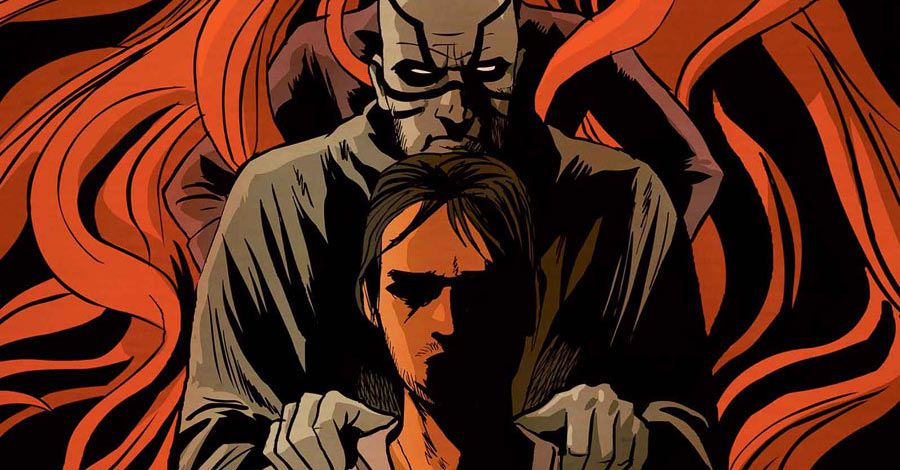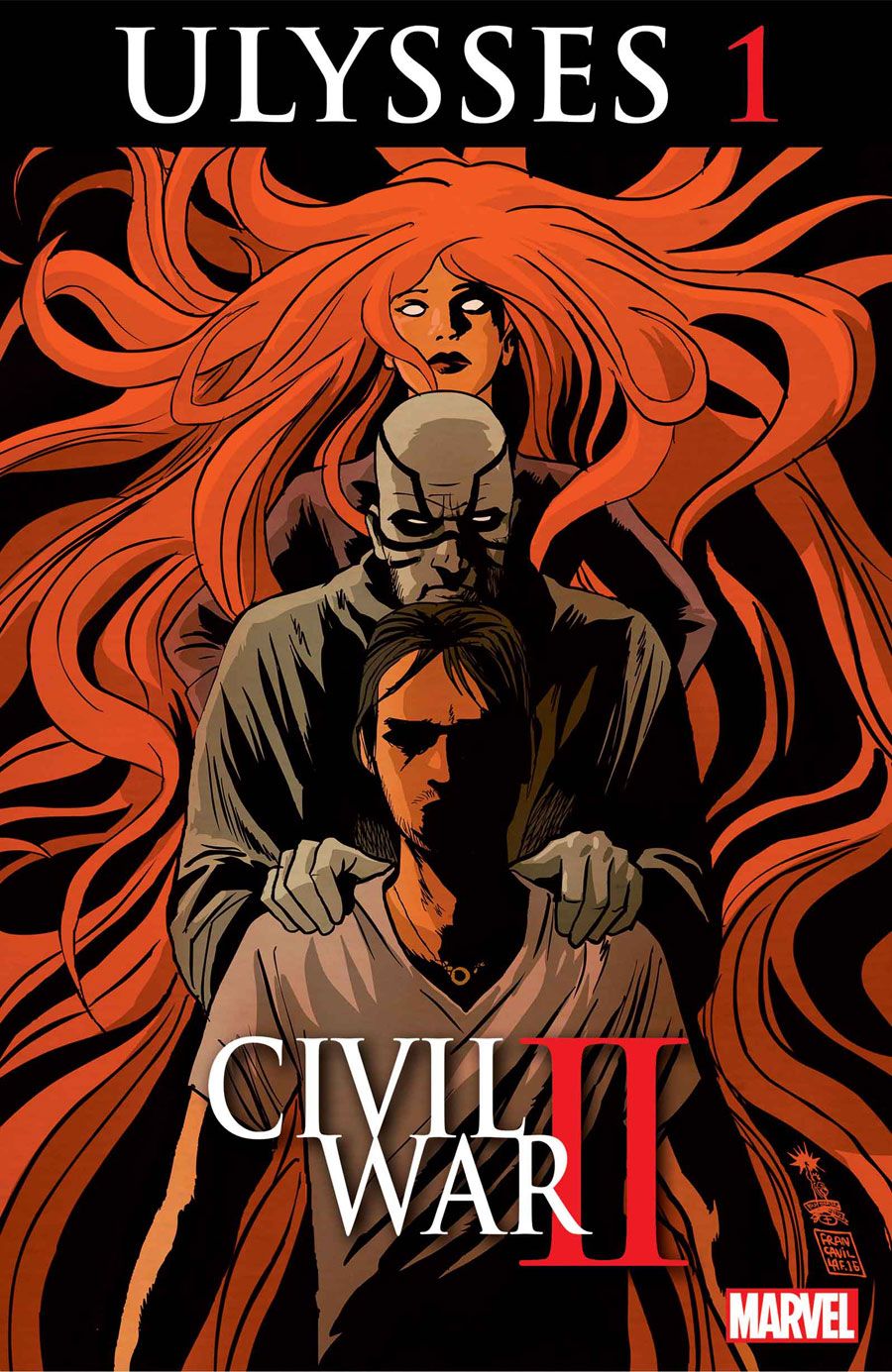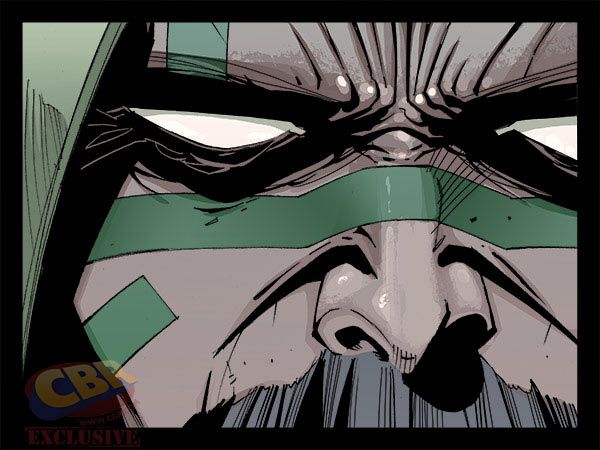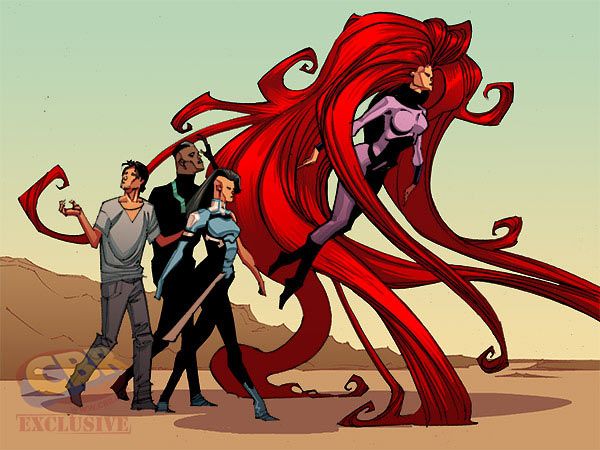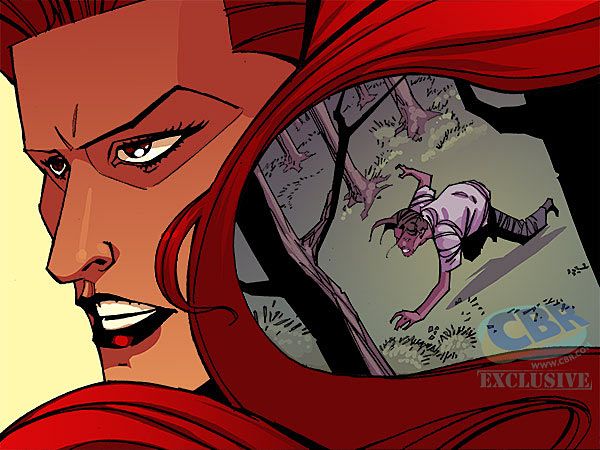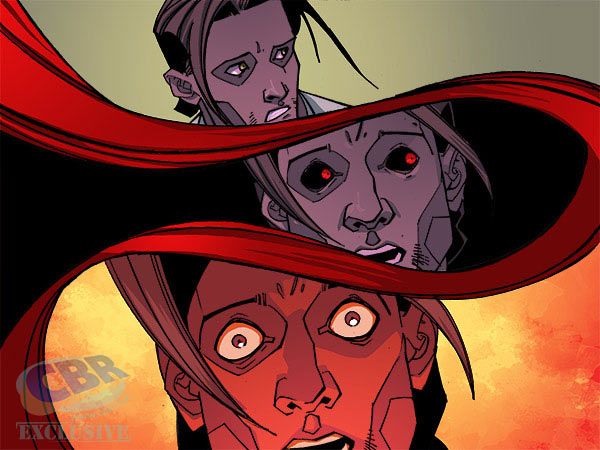Among the many superhuman abilities possessed by Marvel Universe residents are the ability to control minds, start fires and even warp reality. But compared to the ability to see the future, they may as well be child's play. At the heart of the recently commenced "Civil War II" event series by Brian Michael Bendis and David Marquez is Ulysses, a young man exposed to the Terrigen Cloud that activated his Inhuman DNA and transformed him into a "Nuhuman." His ability to see into the future has caused quite a commotion in the heroic community, with some wanting to act on his prophetic visions before they come to pass and others choosing only to take on threats as they arise. And the very question of what to do with this awesome power is exactly what will divide Iron Man and Captain Marvel, as well as the heroes who take up sides behind them.
Marvel's "Civil War II" #1 Reveals One Major Casualty -- And Maybe a Second
Readers briefly met Ulysses in Marvel's Free Comic Book Day offering and again in recent "Civil War" #0, which showed the life-changing effects of the Terrigen Cloud. This month, writer Al Ewing and artists Jefte Palo & Karl Kesel will unveil more of the prophetic Inhuman's origin in the Infinite Comics series "Civil War II: Ulysses." CBR News spoke with Ewing about the project, the chance to dive into the world of the Inhumans, his protagonist's dynamic with characters like Karnak, and the appeal of working on an Infinite Comics series.
CBR News: Readers first saw Ulysses in the Free Comic Book Day prelude to "Civil War II" and he seemed to be a pretty well adjusted guy who had come to terms with his Inhuman powers. But your stories doesn't pick up from there, it actually goes back to his origins. When exactly does your series begin and what kind of person is Ulysses when we meet him again for the first time?
Al Ewing: Not so well adjusted, is the answer. When we meet him, he's only very recently come out of his cocoon, and as we'll see in the main "CWII" book, he's still coming to terms with his ability. He's a pretty ordinary guy who's suddenly got this power to see the future, and what he's seen so far are generally bad things -- big disasters. That'd freak you or me out, and Ulysses isn't any different -- he doesn't fully understand the power, and he's scared by it. As far as he's concerned, he's suffering from terrifying visions of calamity that come on without any kind of warning, and the fact that they're visions of a future that might come to pass doesn't exactly make them easier to bear.
In this book you're immersing Ulysses into the world of the New Attilan-based Inhumans and the world of the Inhumans in general. What's it like diving into that world through the eyes of this new character? What do you find most interesting about the Inhumans and their current status in the Marvel Universe?
I've got a whole bunch of thoughts about the Inhumans, but relating to this -- it's the "falling out of the world" aspect. You get that sometimes with mutants, as well -- that thing where you thought you were in a world that nurtured you, but actually you're in one that hates and fears you -but it feels like a more extreme shift with the Inhumans, in that Inhumans have their own culture, their own rules, their own ethics, their own ways of doing things, much more than Mutants do. The Inhumans are trying to be friendly with the human world, but they're not the human world and they never will be. When you come out of the cocoon as an Inhuman, you are no longer standing on the same planet. (The exception that proves the rule here is Ms. Marvel, who absolutely still lives in the human world. On the other hand, she's a famous super hero now, so there's that.)
So, yeah, when we look at the world of the Inhumans through Ulysses' eyes, we're going to be seeing the strangest elements. We're going to the Tower of Wisdom and we're going to meet some Inhumans, and it's going to get a little freaky. But we're not in the human world now.
The Tower of Wisdom setting means Ulysses will have an especially close relationship with it's Magister, Karnak. What kind of dynamic do the two of them initially have?
They don't like each other. Does Karnak really like anyone? He has respect for people -- he respects Medusa and Black Bolt, and at least one of the new characters we introduce -- but that's not really the same thing. I'm sure he has people he has some glimmer of feeling for, but none of them are in this comic. So when Karnak first sees Ulysses, he doesn't think much of him. There's a lot of room for improvement. But he's been commanded to do something with this college boy by his Queen, so he's going to do that.
When Ulysses first meets Karnak, Karnak's essentially a scary, ratty little man in a hoodie with a larger-than-normal head, who's just uncompromisingly kicked a bunch of ass and is now talking about how he's going to teach Ulysses, where "teach" might easily mean "repeatedly beat up." So Ulysses is a little intimidated. But Karnak, apparently, is the key to understanding and controlling his terrifying powers.
Who are some of the other supporting characters that Ulysses will interact with in this story? Any members of the Inhuman Royal Family?
He'll be meeting Medusa, Flint and Iso from the regular Inhumans series. After that, things get weird, and we meet some new Inhumans with some very odd powers -- there's Lock, for example. He's an interesting case. I was inspired there by an old Stephen King story about a giant finger that erupts out of a plughole. When I handed in the plot for that episode, I was told I was a very sick man.
[Laughs] What's it like telling a story about Ulysses and his precognitive gift? Does it affect how you approach the storytelling in terms of tone or pacing? And is this more of an action-oriented or character-driven story?
There's some action -- we start off with a nice fight -- but there's a fair degree of body horror, at least from a human viewpoint, and there's also a puzzle element. When I was initially describing this, it was half a dark horror story in a creaky old castle and half a puzzle the main character had to solve. And there's a lot of character stuff in there too. Ulysses' gift adds a ticking-clock element -- beyond that, I think I'll let the story play out for itself.
"Civil War II: Ulysses" marks your return to the Infinite Comic format following "Iron Man: Fatal Frontier." What do you enjoy most about this format and how does it compare to a traditional comic book? Is it more challenging, less, or about the same?
I started out at Marvel embracing the "Marvel Method," whereas now I tend to do a full-ish script, with placeholder dialogue that will morph quite a lot when the art comes through. Infinite Comics veer a bit more into the Marvel Method, because there's that extra step of the storyboard artist, who is at the sharp end of deciding how the story's paced and how the action beats fall. That's really the biggest difference -- that the page is not the screen, and vice versa. In paper comics, and even on digital, you're very conscious of how the page turns affect the story, of the page as a complete unit. With Infinite Comics, every panel is a complete unit, and every new panel is a page turn. Small changes become very powerful, transitions between panels are extremely important. Plus the pace is a little faster, too. So it's slightly more challenging, but it's very rewarding when it all comes together.
Collaborating with you this time is veteran comics writer and inker Karl Kesel, who is storyboarding your tale, and Jefte Palo, whose style is perfect for the dark tales with biting humor. How have you found the collaboration with each of them?
Karl is our "Director," and he's absolutely fantastic. He's done a number of these before, so he's got experience in the field, and he also articulated something to me which I agree with 100% -- which is that we're very much in the "Golden Age" of this version of the medium, when we're still working out all the tricks, and if we stretch our imaginations a little, it's possible to do something nobody else has ever done before. It's all out there for the taking. So he's an inspiration on that level, and I'm trying to push myself to come up with great transitions and uses of the format. And he's encouraging us to push him the same way. There's a good team energy on this one.
As for Jefte -- he's great. I love his line, and his style, and as we get dark, it's really going to come into its own. I'm reminded of Richard Case and the Pander Brothers, in a very good way -- I'm really enjoying what he's doing with the layouts so far, and I absolutely can't wait to see what he does as we shift into more horror-tinted territory.
Since you're writing a story about a character who can see the future, is "Ulysses" a series that will offer readers cryptic clues about the future of "Civil War II?" And if not the main event book, maybe some of your three monthly Marvel titles?
Well, there might be a cryptic clue or two -- if you were to read "CWII" in chronological order, starting with #0 and moving on to us, we might drop a hint or two as to what's coming.
I'll finish by saying a big thank you to any readers buying the book -- if you're a fan of Infinite Comics, I suspect this is going to be one to remember!
"Civil War II: Ulysses" will receive a print edition this August from Marvel Comics.

